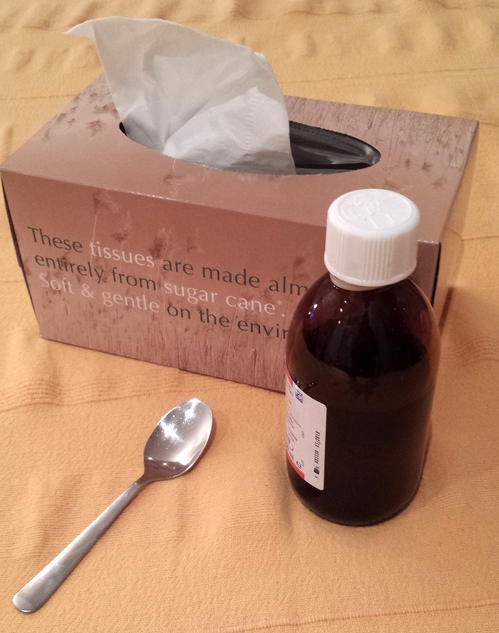One of the main reasons that we can hurt our backs when coughing, is that if we habitually hold ourselves in a fixed manner with contracted, tense back muscles, this tightness will be increased by the strong spasms of coughing and sneezing, which will obviously be more exaggerated if you have a long bout of coughing. The lower back in the lumbar region can be particularly vulnerable and the jolting can jar the spine or strain the muscles, sometimes even damaging an intervertebral disc, causing great pain. There can also be a problem for people with hypermobility, as they can sometimes dislocate their joints if their body gets jolted strongly.
If you have had some AT lessons, you can remind yourself to use a small (and moveable) monkey position when coughing. If we are sitting, we can free the hip joints and let our bodies angle slightly forwards from the hips, so that the torso is freer to move around as it needs to.
Importantly, let the tension go again after coughing and allow your chest to uncurl and open up again. If you forget to do this, the tension and inevitable pulling down that takes place when coughing will just go on building up. If you can lie down in semi-supine afterwards that can help enormously but sometimes it is hard to lie down horizontally if you have a bad cough. In which case, make sure your back (and head?) has good support and spend a few minutes encouraging your chest and back to free up again, just as you would if you were practising the lying down procedure.
The more able you are to have a free neck and back, the more resilient your muscles will be and the more efficient the coughs can be too. Even if you have not had Alexander Lessons, you can help protect your back as you allow your legs, with their moveable hips, knees and ankles, to act as shock absorbers when you cough and work your way back to health.
